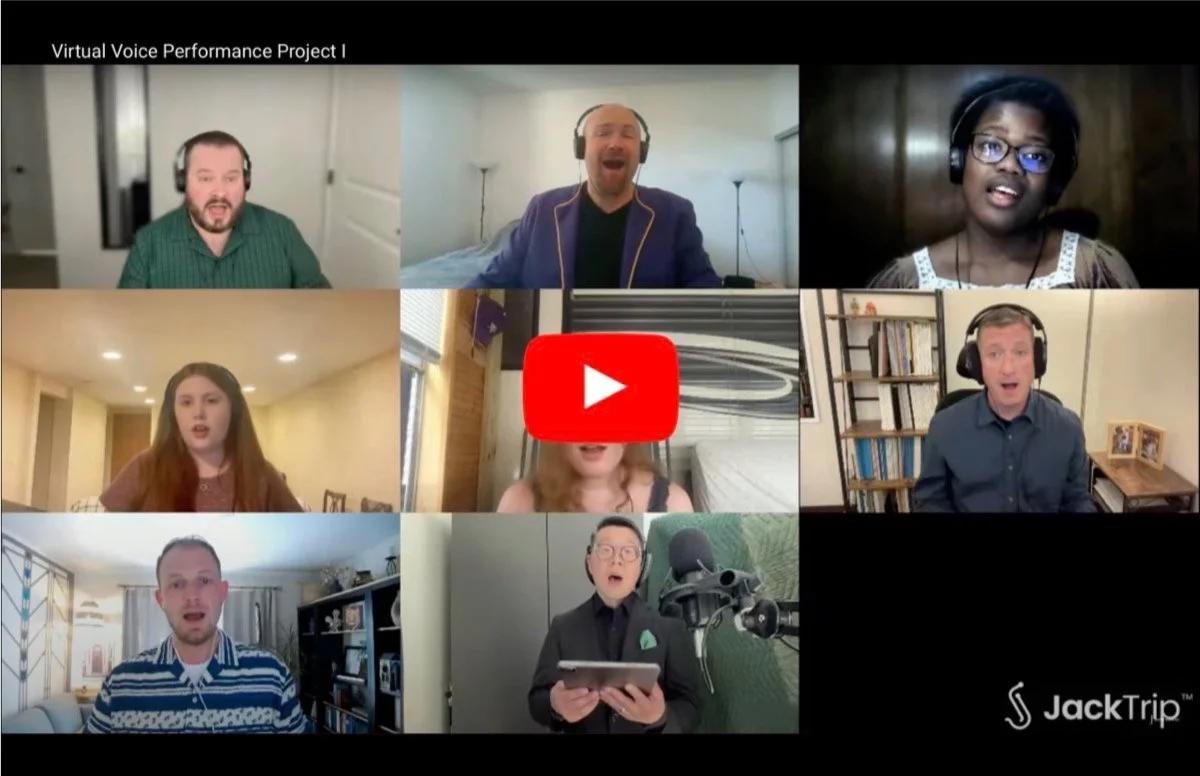VVPP II is hiring student artists to participate in the spring project. Click below to learn more and apply.
Summer 2024 VVPP I Kickoff Performance (click to view)
Virtual Voice Performance Project II: Singing with AI advances the exploration of digital tools in singing performance, building on the success of the initial project, which connected UND students and professional singers across states and continents. The first phase employed JackTrip to enable high-quality, real-time virtual rehearsals and performances. This next iteration will further integrate artificial intelligence (AI) tools alongside JackTrip, expanding the capabilities of virtual singing, mentorship, and research in digital performance spaces.
This project’s primary goal is to equip students with innovative digital tools and research experience, enabling them to explore the possibilities of technology in singing. While every student will sing as part of the virtual ensemble, they will also be encouraged to also explore their unique skills and interests such as composition, vocal pedagogy, or creating a synthesized voice to sing in the ensemble. With faculty guidance, students will pursue individual learning paths within the following broader goals:
Voice as a Technological Instrument
Creating Virtual Compositions
AI-Enhanced Artistic Expression
Students will select AI tools aligned with their interests, formulating research questions to guide their work throughout the semester. They will meet weekly to engage in assignments designed to enhance their understanding of selected AI tools and virtual performance techniques. Beyond their roles as singers, they may explore areas of personal interest, such as:
Using AI Music Apps for Composing and Songwriting
Voice Synthesis and Alteration via AI
Ethics of AI for the Voice and Artists
Developing a Singer’s AI Toolkit
The semester will conclude with a virtual performance or demonstration where students will present their research findings using the tools they’ve mastered. This capstone project will showcase their exploration of AI-enhanced singing performance, offering insights into how singers might adapt to and shape the future of their craft in a digital context.


